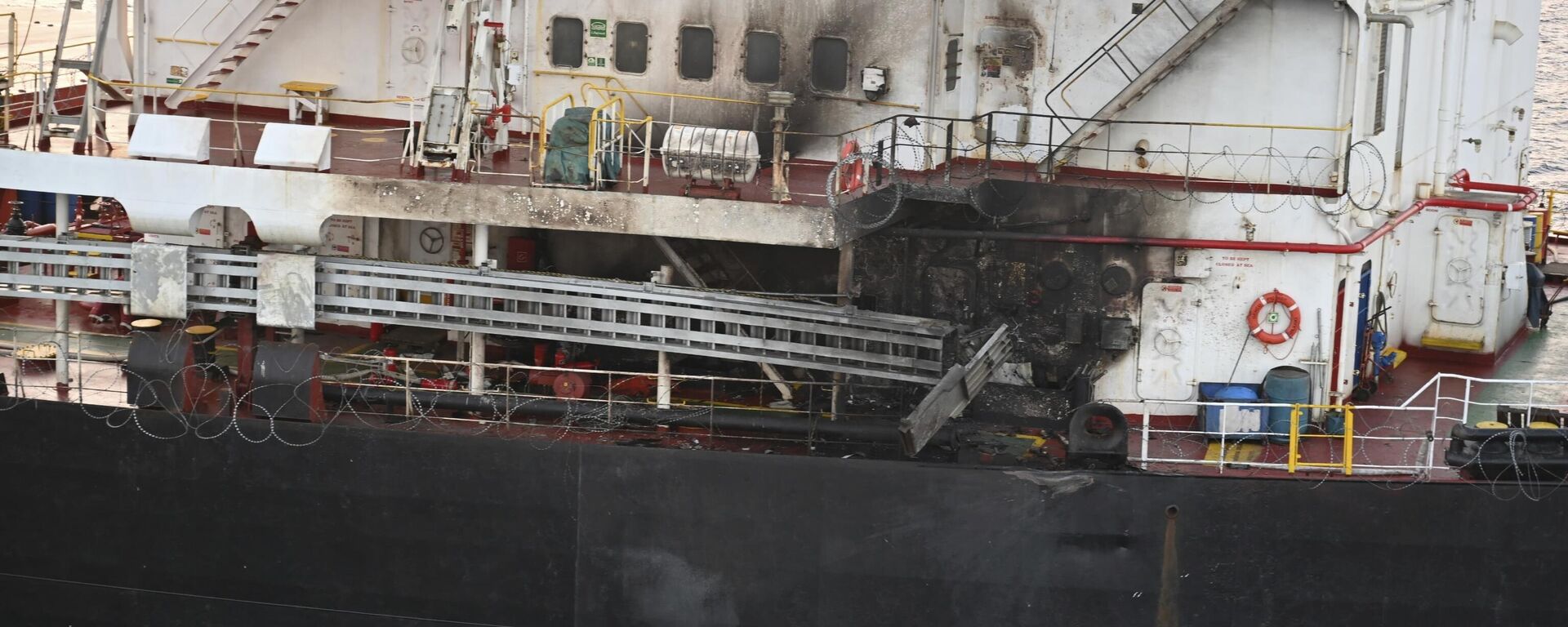https://sputnikglobe.com/20240529/the-us-invites-wanted-criminal-netanyahu-to-dc-1118673283.html
The US Invites 'Wanted Criminal' Netanyahu to DC
The US Invites 'Wanted Criminal' Netanyahu to DC
Sputnik International
The invitation comes at an awkward time, as the International Criminal Court (ICC) has issued arrest warrants for Netanyahu, Hamas leader Yehiya Sinwar and other officials for war crimes.
2024-05-29T05:40+0000
2024-05-29T05:40+0000
2024-05-29T05:40+0000
analysis
us
benjamin netanyahu
dan lazare
israel
persian gulf
red sea
democrats
congress
international criminal court (icc)
https://cdn1.img.sputnikglobe.com/img/07e7/09/07/1113183563_0:0:1981:1114_1920x0_80_0_0_4a956e0b6936c6063b005ba74b959a8a.jpg
A recent report from Common Dreams shows that a growing number of US congressional Democrats are pushing back against House Speaker Mike Johnson’s (R-LA) invitation for Israeli Prime Minister Benjamin Netanyahu to address a joint session of Congress. The invitation comes at an awkward time, as the International Criminal Court (ICC) has issued arrest warrants for Netanyahu, Hamas leader Yehiya Sinwar and other officials for war crimes and crimes against humanity in the Gaza Strip.Representative Mark Pocan (D-WI) said that if “Netanyahu comes to address Congress, I would be more than glad to show the ICC the way to the House floor to issue that warrant." Meanwhile, Senator Bernie Sanders (I-VT) also indicated his intent to boycott any address by the prime minister, adding that Netanyahu had created the “worst humanitarian disaster in modern history”.But some US officials have suggested that the ICC does not have jurisdiction over the conflict in Gaza, nor the US itself. Last week, US Senator Lindsey Graham said he wanted to sanction the ICC for its decisions, to which US Secretary of State Antony Blinken suggested he would support the senator. On Tuesday, the independent investigative journalist and author Dan Lazare sat down with Sputnik’s Wilmer Leon to discuss US Republicans’ outstretched hand to Netanyahu."I think that Democrats are demoralized. They don't know what to do. They're just sick and tired of Biden's ineffectuality. He keeps promising that a ceasefire is just around the corner. A ceasefire is no closer now than it was four or five months ago. He's totally out of it," said Lazare.“And I don't have the slightest doubt that if he makes it a fourth time, he will be greeted the same way. The despicable nature of the US Congress is just not to be underestimated.”Sputnik’s Wilmer Leon noted that a majority of Americans now disapprove of Israel’s action in Gaza, according to a poll from late March. Just 36% of Americans approve of Israel’s military action in Gaza and 55% say they disapprove. The poll also showed that just 34% of Americans are following the war “closely” compared to 72% who said they are following it “very closely”.The poll was completed just before the UN Security Council passed a resolution calling for a cease-fire which only went through because the US chose to abstain rather than veto the resolution as they had repeatedly done in the past.The Carter Doctrine was a policy enacted by the 39th US president, Jimmy Carter, in 1980. Following his presidency, it appeared as though both Democrats and Republicans were committed to defending the oil fields of the Persian Gulf. In the summer of 2019, former President Donald Trump withdrew from the Iran nuclear deal and imposed “maximum pressure” on Tehran economically. Iran then attacked the Gulf states and their oil exports.In late April, Blinken visited Saudi Arabia and emphasized the Biden administration’s desire for an increased collaboration with and amongst the Persian Gulf states to create an integrated defense strategy aimed at countering Iran’s regional influence. His visit followed Iran’s decision to launch over 300 projectiles in a retaliatory attack against Israel.Leon noted that Ansar Allah “demonstrated in the Red Sea that they can shut down commercial traffic”, adding that the day before Iran responded to the Israeli attack, “they captured a commercial vessel demonstrating to the US we can shut this down too”. Yemen’s Houthi Rebels have launched a number of attacks in the Red Sea as a demand for the end of the war in Gaza. They have launched more than 50 attacks on shipping, seized a vessel and sunk another since November, a report citing the US Maritime Administration, said.“The Houthis have been fairly effective. And they are really hard to combat because Yemen is an extremely mountainous country,” said Lazare, who suggested that the group has a plethora of hiding places. “They can assemble their missiles in a matter of minutes and then escape as soon as they're fired.”
https://sputnikglobe.com/20240528/houthis-attack-3-us-israeli-ships-in-red-sea-indian-ocean---spokesperson-1118656556.html
israel
persian gulf
red sea
Sputnik International
feedback@sputniknews.com
+74956456601
MIA „Rossiya Segodnya“
2024
News
en_EN
Sputnik International
feedback@sputniknews.com
+74956456601
MIA „Rossiya Segodnya“
Sputnik International
feedback@sputniknews.com
+74956456601
MIA „Rossiya Segodnya“
houthis, netanyahu, biden, congress, blinken, netanyahu in congress, biden-netanyahu talks, netanyahu-blinken talks, killings of civilians, civilian infrastructure, civilians dead, civilians die, israel kills civilians, civilian casualties, civilian deaths, indiscriminate shelling, indiscriminate killing, war crimes, genocide, ethnic cleansing, humanitarian disaster, humanitarian catastrophe
houthis, netanyahu, biden, congress, blinken, netanyahu in congress, biden-netanyahu talks, netanyahu-blinken talks, killings of civilians, civilian infrastructure, civilians dead, civilians die, israel kills civilians, civilian casualties, civilian deaths, indiscriminate shelling, indiscriminate killing, war crimes, genocide, ethnic cleansing, humanitarian disaster, humanitarian catastrophe
The US Invites 'Wanted Criminal' Netanyahu to DC
The invitation to Netanyahu comes on the heels of Republican lawmakers releasing an open and signed letter threatening officials of the court with sanctions against their employees, associates, them and their families.
A recent report from
Common Dreams shows that a growing number of US congressional Democrats are pushing back against House Speaker Mike Johnson’s (R-LA) invitation for Israeli Prime Minister Benjamin Netanyahu to address a joint session of Congress. The invitation comes at an awkward time, as the International Criminal Court (ICC) has issued arrest warrants for Netanyahu, Hamas leader Yehiya Sinwar and other officials for war crimes and crimes against humanity in the Gaza Strip.
Representative Mark Pocan (D-WI) said that if “Netanyahu comes to address Congress, I would be more than glad to show the ICC the way to the House floor to issue that warrant." Meanwhile, Senator Bernie Sanders (I-VT) also indicated his intent to boycott any address by the prime minister, adding that Netanyahu had created the “worst humanitarian disaster in modern history”.
But some US officials have suggested that the
ICC does not have jurisdiction over the conflict in Gaza, nor the US itself. Last week, US Senator Lindsey Graham said he wanted to sanction the ICC for its decisions, to which US Secretary of State Antony Blinken suggested he would support the senator.
On Tuesday, the independent investigative journalist and author Dan Lazare sat down with Sputnik’s Wilmer Leon to discuss US Republicans’ outstretched hand to Netanyahu. "I think that Democrats are demoralized. They don't know what to do. They're just sick and tired of Biden's ineffectuality. He keeps promising that a ceasefire is just around the corner. A ceasefire is no closer now than it was four or five months ago. He's totally out of it," said Lazare.
“Netanyahu hasn't accepted [Johnson’s invitation] yet and the Democrats haven't yet signed on,” Lazare explained. “I think there will be little pushback in the end. I think that with a handful of exceptions, Democrats will be there clapping for Netanyahu if he does give this speech. He's addressed Congress three times before in the past - that's more than any foreign leader except for Winston Churchill.”
“And I don't have the slightest doubt that if he makes it a fourth time, he will be greeted the same way. The despicable nature of the US Congress is just not to be underestimated.”
Sputnik’s Wilmer Leon noted that a majority of Americans now disapprove of Israel’s action in Gaza, according to a poll from late March. Just 36% of Americans approve of Israel’s military action in Gaza and 55% say they disapprove. The poll also showed that just 34% of Americans are following the war “closely” compared to 72% who said they are following it “very closely”. The poll was completed just before the UN Security Council passed a resolution calling for a cease-fire which only went through because the US chose to abstain rather than veto the resolution as they had repeatedly done in the past.
“Several hundred miles to the east of Gaza lies the Persian Gulf, which contains roughly 55% or 60% of the world's proven fossil fuel reserves,” the author and journalist explained. “And maintaining control of the Persian Gulf has been a top US priority since January 1980, when Jimmy Carter, if you remember him, unveiled something called the Carter Doctrine, which is that the US laid exclusive claim to the Gulf's energy resources, and no one else had better even think about muscling in.”
The Carter Doctrine was a policy enacted by the 39th US president, Jimmy Carter, in 1980. Following his presidency, it appeared as though both Democrats and Republicans were committed to defending the oil fields of the Persian Gulf. In the
summer of 2019, former President Donald Trump withdrew from the Iran nuclear deal and imposed “maximum pressure” on Tehran economically. Iran then attacked the Gulf states and their oil exports.
In late April,
Blinken visited Saudi Arabia and emphasized the Biden administration’s desire for an increased collaboration with and amongst the Persian Gulf states to create an integrated defense strategy aimed at countering Iran’s regional influence. His visit followed Iran’s decision to launch over 300 projectiles in a retaliatory attack against Israel.
“So, given that, Israel's an absolutely indispensable US ally. I mean, it's been used many times, described as an unsinkable US aircraft carrier. Joe Biden once said that if Israel didn't exist, the US would have to invent it. It's an indispensable partner, and that trumps any kind of momentary political consideration,” the author added. “Whatever dissent there is will be completely minor and incidental.”
Leon noted that Ansar Allah “demonstrated in the Red Sea that they can shut down commercial traffic”, adding that the day before Iran responded to the Israeli attack, “they captured a commercial vessel demonstrating to the US we can shut this down too”. Yemen’s Houthi Rebels have launched a number of attacks in the Red Sea as a demand for the end of the war in Gaza. They have launched more than 50 attacks on shipping, seized a vessel and sunk another since November, a
report citing the US Maritime Administration, said.
“The Houthis have been fairly effective. And they are really hard to combat because Yemen is an extremely mountainous country,” said Lazare, who suggested that the group has a plethora of hiding places. “They can assemble their missiles in a matter of minutes and then escape as soon as they're fired.”
“The Houthis are certainly a significant irritant, and they have put a big dent in Red Sea traffic. The Persian Gulf is easier to defend and easier to control, and the US has [...] spent literally tens of trillions of dollars in militarizing the Gulf region,” the journalist added. “However, I do believe that, the Houthis notwithstanding, that the correlation of forces has increased in US favor, US-Israeli favor, over the last 30 years. In certain respects, I regard the Persian Gulf as less dangerous.”



